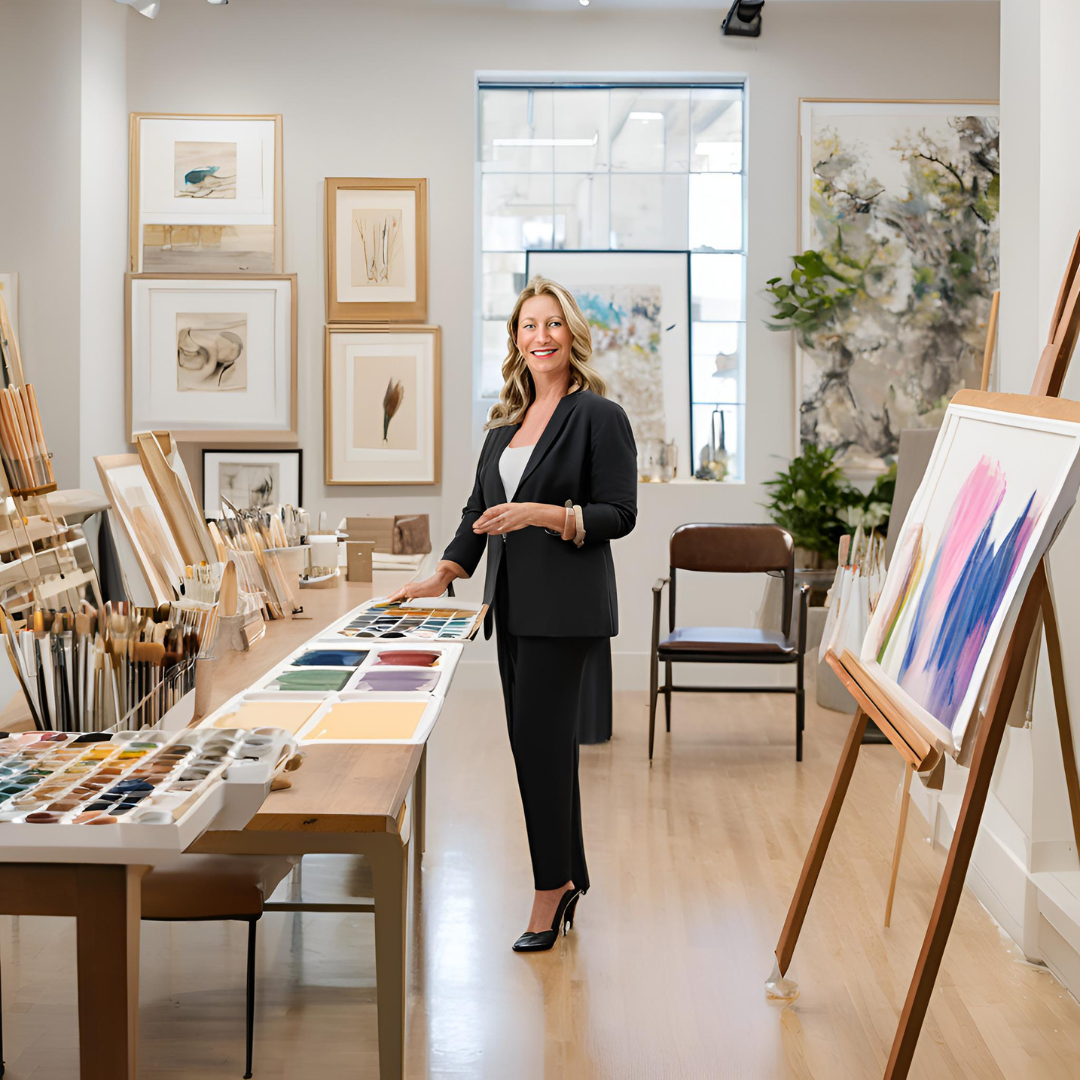In the whimsical world of art, where creativity reigns supreme and paint-stained jeans are a fashion statement, the concept of professionalism might seem as out of place as a Picasso in a preschool. However, professionalism is the secret sauce that can elevate an artist from “that quirky person with a brush” to a respected name in the industry. Think of it as the well-primed canvas that allows your creative genius to truly shine.

Why Professionalism Matters in the Art Industry?
Credibility and Trust: Professionalism fosters trust. Galleries, collectors, and patrons want to work with artists who are reliable and dependable. In a world where reputation can make or break careers, being known for your professionalism is like having a golden ticket. According to a survey by Art Market Insights, 78% of galleries prefer to represent artists who exhibit strong professional behaviors.
Consistency in Quality: Consistency is key. Just like a well-baked soufflé, your art should consistently rise to the occasion. When you approach your craft with professionalism, you’re more likely to produce high-quality work on a regular basis, ensuring that your soufflé never falls flat.
Networking Opportunities: The art world is a lot like a high school dance; who you know can be just as important as what you can do. Professionalism opens doors to networking opportunities, collaborations, and exhibitions. Remember, the art world may love a rebel, but it respects a professional.
Financial Stability: Let’s face it, starving artists might be romanticized in movies, but in real life, paying rent is a bit more pressing. Professionalism can lead to more consistent sales and commissions, turning your passion into a sustainable career. According to the Creative Industries Federation, professional artists earn, on average, 25% more than their less professional peers.
How Artists Can Maintain Professionalism
Effective Communication: Whether you’re negotiating a commission, discussing a gallery show, or simply responding to fan mail, clear and respectful communication is crucial. Think of it as the fine detail work in your painting; it brings everything together.
Punctuality: Meeting deadlines and showing up on time for meetings or exhibitions shows respect for others’ time and schedules. Being fashionably late might work for rock stars, but for artists, it’s better to be fashionably early.
Presentation: Your appearance and the presentation of your work matter. A well-groomed artist with a well-presented portfolio is more likely to be taken seriously. If your artwork is the star, make sure its stage is set perfectly.
Continuous Learning: Stay updated with the latest trends, techniques, and industry standards. Attend workshops, art fairs, and networking events. Being a lifelong learner not only improves your craft but also shows that you are committed to your profession.
Financial Management: Keep your finances in order. This means tracking your expenses, understanding your market value, and pricing your work appropriately. No one wants to be the artist who can’t afford their own supplies because they sold their masterpiece for a pittance.
In a nutshell, professionalism in the art world is like the frame around your painting; it enhances the overall picture and ensures that your work is presented in the best possible light. By embracing professionalism, you not only improve your chances of success but also contribute to a more respected and vibrant art community. So, swap those paint-stained jeans for a pair of professional trousers (at least metaphorically), and watch your career flourish like a well-tended garden.